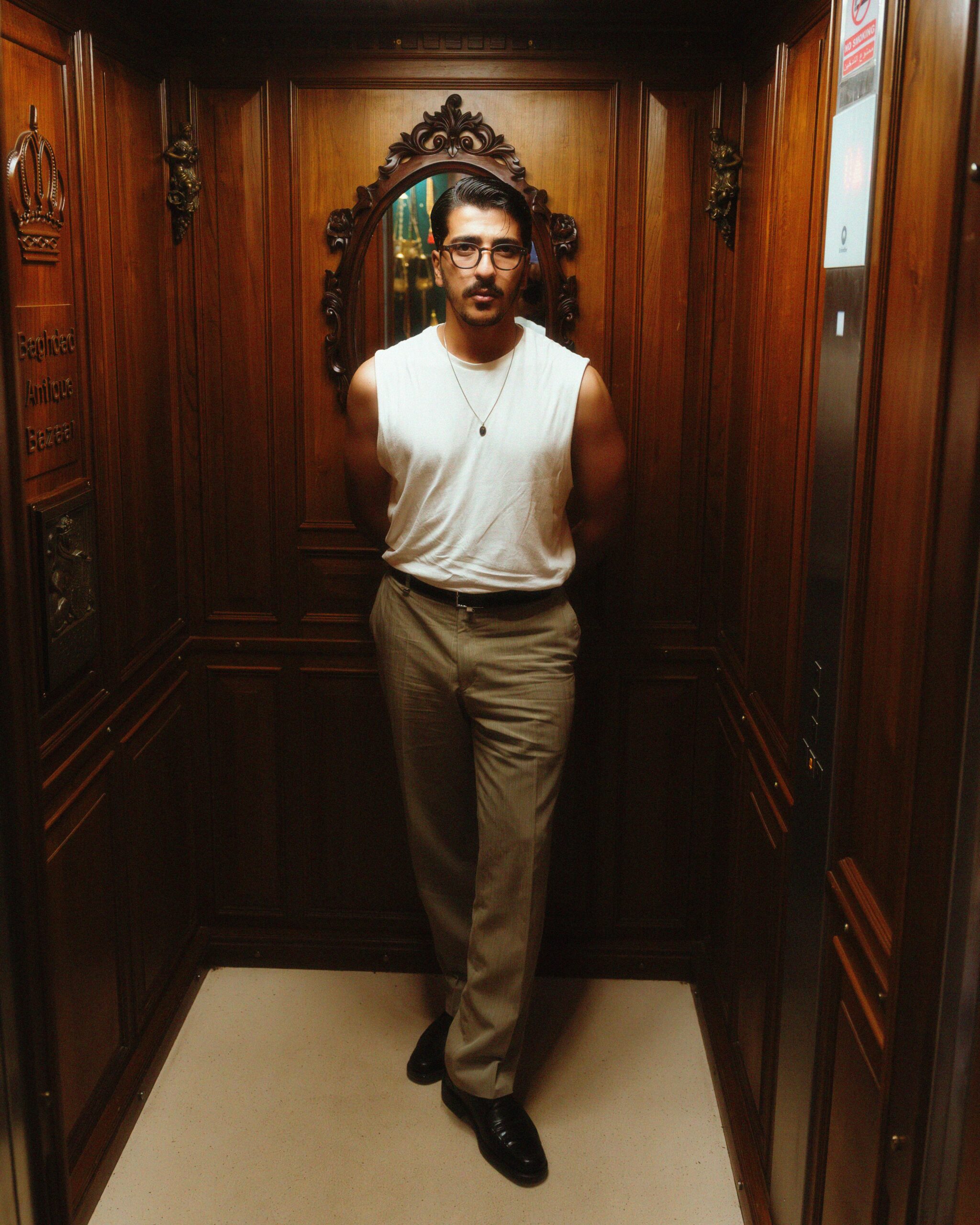When it comes to finding the perfect getaway, nothing compares to the allure of luxurious hotels that promise an unforgettable stay experience. But have you ever wondered what words truly capture the essence of these opulent retreats? In this article, we’ll dive deep into the best words to describe luxurious hotels, helping you elevate your vocabulary and your next vacation planning. Whether you’re a travel enthusiast, a blogger, or someone looking for the ultimate indulgence, discovering the right adjectives can totally transform how you perceive and share your stay.
Imagine stepping into a world where every detail whispers elegance and comfort—words like sumptuous suites, bespoke services, and lavish amenities come to mind instantly. But there’s so much more beneath the surface. From exquisite decor to world-class hospitality, learning the perfect descriptive words can help you paint a vivid picture that captures the luxury vibe perfectly. Are you ready to explore the ultimate list of powerful phrases and keywords for upscale hotels that will make your descriptions shine brighter than ever?
Stay tuned as we unravel the most compelling and trendy words that define not just the physical beauty of luxurious hotels, but also the emotional and sensory experience that comes with staying in these high-end havens. With these carefully curated words, your next hotel review or travel story will not only attract attention but also inspire wanderlust in your audience. Let’s embark on this linguistic journey to elevate your stay experience with the most captivating and SEO-friendly words to describe luxurious hotels!
10 Elegant Words to Describe Luxurious Hotels That Instantly Elevate Your Stay
When you think about staying in a luxurious hotel, the experience is supposed to feel like a dream come true. But sometimes it’s hard to find the right words to describe that indulgent, grand feeling that these places offer. If you ever try to explain to friends or write a review, you might struggle with just calling it “nice” or “fancy.” So, here’s a helpful guide with 10 elegant words to describe luxurious hotels that instantly elevate your stay, making your descriptions richer and more vivid.
Why Choosing the Right Words Matter
Words have power. They paint pictures in our minds. When you describe a hotel, the language you uses can turn an ordinary review into something that spark curiosity or desire. Fancy words can also better communicate the kind of experience that guests should expect. For example, calling a hotel “opulent” gives a stronger impression than just saying “expensive.” This matters especially for travelers searching online because good descriptive words improve SEO and help hotels stand out in crowded markets like New York’s.
10 Elegant Words to Describe Luxurious Hotels
Here’s a list of ten words that not only sound sophisticated but really capture what luxury hotels offer:
Opulent – This word means lavish, richly decorated, and grand. It often refers to hotels with sumptuous interiors, golden accents, and plush furnishings. Example: The Waldorf Astoria New York has an opulent style that takes you back to the Roaring Twenties.
Sumptuous – Implies rich in texture and comfort. You might use this to describe soft bedding or gourmet food. It suggest indulgence that appeals to senses. Practical: “The sumptuous linens made it hard to leave the bed.”
Palatial – Means resembling a palace, huge and impressive. Hotels with grand ballrooms or massive suites fits this description. When you say a hotel is palatial, you hint at extraordinary scale and grandeur.
Lavish – Means very rich, elaborate, or luxurious. It can describe both the design and the services. Lavish spas, lavish breakfasts, or lavish parties held at the hotel all show this.
Elegant – Classic and refined beauty, not over the top but tasteful and stylish. The term elegant is perfect for describing boutique hotels known for their understated charm.
Exquisite – Means extremely beautiful and delicate. Use it to describe details like handcrafted décor or art pieces in the lobby. It suggests careful attention to quality.
Regal – Fit for royalty. Regal hotels often have a stately presence, with traditional design elements like chandeliers and marble. The term creates a sense of dignity and honor.
Exclusive – Means limited access, only for a select few. Exclusive resorts or clubs within hotels make the stay feel special and private.
Refined – This word means cultured and sophisticated. It’s often used to describe the ambiance or the service style, where everything is polished and professional.
Enchanting – Suggests a magical or charming atmosphere. An enchanting hotel might have fairy-tale gardens or unique architecture that captivates guests.
How These Words Connect to Guest Experience
These words don’t only describe how a hotel looks but also how it makes guests feel. For example, the word “lavish” might remind someone of being spoiled with extra amenities like a personal butler or a champagne welcome. “Enchanting” triggers imagination and wonder, making guests feel like they escape reality for a while. When writing reviews or marketing content, pairing these words with real experiences is key.
Comparing Word Usage: Basic vs. Elevated Descriptions
| Basic Word | Elevated Word | Example |
|---|---|---|
| Nice | Elegant | The hotel lobby was nice → The hotel lobby was elegant |
| Fancy | Opulent | The room was fancy → The room was opulent |
| Big | Palatial | The suite was big → The suite was palatial |
| Comfortable | Sumptuous | The bed was comfortable → The bed was sumptuous |
| Private | Exclusive | The pool was private → The pool was exclusive |
You see here that elevated words often give more emotion and imagination, which makes your description stand out in a sea of generic reviews.
Practical Examples from New York Hotels
- The Plaza Hotel: A palatial and regal icon with its grand façade and historic significance. Staying here feels like you stepped into a movie set.
- The Peninsula New York: Known for its lavish amenities and exclusive rooftop bar, offering breathtaking city views.
- The Greenwich Hotel: Exquisite craftsmanship with handcrafted details in each suite, creating an enchanting retreat in Tribeca.
Tips for Using These Words in Your Writing
- Don’t overuse fancy words in one paragraph; it might sound fake or forced.
- Mix
How to Use Powerful English Words to Describe Luxurious Hotels Like a Pro
When you think about luxurious hotels, what words come in your mind? Maybe “elegant,” “opulent,” or “lavish”? Describing these majestic places require more than just basic adjectives. Using powerful English words to describe luxurious hotels can truly elevate your stay experience and help others imagine the grandeur you encounter. But sometimes, the right words doesn’t come easy, and people often struggle to capture the exact feel of luxury in writing or conversation.
Why Does Choosing the Right Words Matter?
Words shapes how we perceive things. When you say a hotel is “nice,” it hardly conveys the same feeling as “sumptuous” or “palatial.” Especially in New York, a city filled with countless upscale accommodations, standing out means using language that reflects the unique qualities of a place. It’s not just about showing off, but about painting a vivid picture for your readers or friends.
Historically, luxury has been associated with exclusivity, comfort, and style. In the past, only the wealthiest could afford to stay in grand hotels designed with intricate architecture and finest materials. Today, while luxury is more accessible, the words to describe it remains selective and specific.
Words To Describe Luxurious Hotels That Will Elevate Your Stay Experience
Here is a list of words you can use to vividly describe luxurious hotels, each with brief explanations and examples:
- Opulent — Suggests rich, lavish decoration and wealth. For example, “The lobby featured opulent chandeliers and marble floors that dazzled every guest.”
- Sumptuous — Implies something splendid and expensive-looking, often related to comfort or food. “The suite included a sumptuous king-size bed with silk linens.”
- Palatial — Reminds one of a palace; grand and spacious. “Her room was palatial, with high ceilings and expansive windows.”
- Lavish — Means extravagant and over-the-top in a positive way. “The hotel offered lavish spa treatments that made every visitor feel pampered.”
- Elegant — Refers to something stylishly graceful and sophisticated. “The elegant design of the hotel was evident in every detail.”
- Exclusive — Denotes limited access or special privileges. “Guests enjoyed exclusive access to the rooftop bar overlooking the city.”
- Luxuriant — Often used to describe lush surroundings or rich textures. “The luxuriant gardens surrounding the hotel provided a peaceful retreat.”
- Refined — Suggests a polished and cultured atmosphere. “Refined service made the stay even more memorable.”
- Extravagant — Highlights excessive or elaborate quality. “The extravagant décor included gold leaf and velvet drapes.”
- Sumptuous — Indicates rich and superior quality in comfort or appearance. “Sumptuous furnishings made the suite feel like royalty.”
Practical Examples to Use in Your Writing or Conversation
Imagine you writing a review or telling a friend about your stay. Instead of saying “The hotel was nice,” try these sentences:
- “The opulent lobby dazzled me with its crystal chandeliers and marble statues.”
- “Every corner of the hotel exuded an elegant charm, blending modernity with classic design.”
- “The palatial suite gave me a breathtaking view of Central Park, paired with luxurious amenities.”
- “I felt completely pampered by the lavish spa treatments and exclusive guest services.”
- “The staff provided refined and attentive service, making my stay unforgettable.”
Comparing Common vs. Powerful Descriptions
To understand why powerful words matters, look at this comparison table:
| Common Word | Powerful Alternative | Why It’s Better |
|---|---|---|
| Nice | Elegant | Conveys style and sophistication |
| Big | Palatial | Suggests grandeur and spaciousness |
| Comfortable | Sumptuous | Implies richness in comfort |
| Expensive | Opulent | Highlights lavish and rich quality |
| Good Service | Refined Service | Shows polished and cultured assistance |
This table helps you see how choosing precise adjectives enrich your description and captures attention better.
Tips for Using Powerful Words Like a Pro
- Know your audience: If you write for travelers or luxury seekers, use more sophisticated words; for casual readers, balance with simpler terms.
- Mix it up: Avoid repetitive words. Use synonyms or related adjectives to keep your writing fresh.
- Be specific: Instead of “beautiful hotel,” say “the hotel’s grand façade showcased intricate stonework from the 1920s.”
- Use sensory details: Combine your powerful words with descriptions of sight, smell, touch, and sound to create immersive experience.
- Don’t overdo it: Sometimes less is more. Overusing fancy words can feel forced or unnatural.
A Quick Reference List of Words to Describe Luxurious Hotels
- Majestic
- Glamorous
- Plush
Discover the Top Descriptive Words for Luxurious Hotels to Impress Every Traveler
When it comes to describing luxurious hotels, travelers often find themselves searching for just the right words that capture the essence of elegance, comfort, and exclusivity. Whether you are planning a vacation, writing a review, or simply want to impress friends with your vocabulary, discovering the top descriptive words for luxurious hotels can truly elevate your stay experience. These words not only help you to paint a vivid picture but also make your communication more engaging. So, let’s dive into some of the most effective and captivating terms that perfectly fit the world of upscale accommodations.
Why Choosing the Right Words Matter?
Using accurate words to describe luxurious hotels is more than just a matter of style. It impacts how potential guests perceive the property and their expectations. A hotel described as “opulent” or “sumptuous” sets a different tone than one called “comfortable” or “nice.” The former suggests a high level of extravagance and refined taste, while the latter implies basic satisfaction. This difference can influence booking decisions greatly. Plus, knowing these words helps in marketing materials, travel blogs, and guest reviews, making your content stand out in a sea of bland descriptions.
Top Words To Describe Luxurious Hotels That Will Elevate Your Stay Experience
Here is a list of adjectives and phrases that perfectly fit when you want to talk about luxury hotels. They cover a range of attributes from architecture to service quality, helping you express your thoughts more vividly:
- Opulent: Suggesting rich and lavish surroundings, often with a historic or classical touch.
- Sumptuous: Implies indulgent comfort, usually referencing soft fabrics, rich colors, and high-end materials.
- Exquisite: Highlights refined detail and impeccable taste in design and ambiance.
- Lavish: Indicates generosity in space, amenities, or decoration.
- Elegant: Denotes simplicity with style, classic beauty without being ostentatious.
- Grandiose: Shows impressive scale and grandeur but sometimes can imply over-the-top.
- Palatial: Resembling a palace, perfect for hotels with majestic architecture.
- Boutique: Smaller, stylish hotels with unique designs and personalized service.
- Serene: Reflects peacefulness and tranquility, often in secluded or garden settings.
- Impeccable: Refers to flawless service and attention to detail.
- Sophisticated: Indicates a refined, cultured, and often modern appeal.
- Exclusive: Suggests privacy and limited access, catering to an elite clientele.
- Chic: Stylish and fashionable, often contemporary and trendy.
- Majestic: Having grandeur and dignity, often related to natural surroundings or architecture.
- Refined: Showing elegance and good taste, sometimes minimalistic.
How These Words Connect to Real-Life Hotel Experiences
Imagine walking into a hotel lobby described as “opulent.” You expect rich marble floors, golden chandeliers, and intricate moldings on the ceiling. That’s exactly what the Waldorf Astoria in New York City offers—an authentic example of opulence with its historic grandeur mixed with modern luxury.
If a hotel is called “boutique,” it might mean you will find a small but charming place, with personalized services tailored to your tastes. Places like the Crosby Street Hotel in Manhattan fit this description, where art pieces and cozy atmospheres create an intimate stay experience. The word “exclusive” often brings to mind private clubs or resorts where not everyone can access, like the Aman New York, which offers privacy and bespoke services to its guests.
Practical Examples: Using These Words in Sentences
- “The sumptuous bedding made it impossible to get out of bed in the morning.”
- “Every corner of the hotel was exquisite, from the hand-painted murals to the fine crystal glassware.”
- “Guests enjoyed the serene garden courtyard, a perfect escape from the city’s hustle.”
- “The staff provided impeccable service, anticipating every need before it was spoken.”
- “Our suite had a palatial feel, with vaulted ceilings and expansive views of Central Park.”
- “The hotel’s sophisticated design blended classic New York style with modern comforts.”
Comparing Words To Describe Luxury Hotels
To better understand these terms, here is a simple comparison table:
| Word | Implies | Suitable For | Example Hotel |
|---|---|---|---|
| Opulent | Rich, grand, often classical | Historic, palace-like hotels | Waldorf Astoria NYC |
| Boutique | Small, personalized, unique | Small hotels with character | Crosby Street Hotel NYC |
| Lavish | Generous, extravagant | Hotels with large spaces, luxury | The Plaza Hotel NYC |
| Serene | Peaceful, calm | Resorts, garden hotels |
What Are the Best Words to Describe Luxurious Hotels? Unlock Opulence in Your Vocabulary
What Are the Best Words to Describe Luxurious Hotels? Unlock Opulence in Your Vocabulary
When you think about luxurious hotels, what words comes to your mind? Maybe “elegant,” “grand,” or “sumptuous.” But describing those grand places you stay at when traveling can be tricky sometimes. There are so many ways to express the extravagance and comfort that these hotels offer, yet finding the perfect words that capture the essence of opulence is not always easy. This article will guide you through some of the best words to describe luxurious hotels and how you can use them to elevate your stay experience or simply share it with others.
Understanding Luxury in Hotels: More Than Just Price
Luxury hotel don’t just mean expensive rooms or fancy amenities. It’s a feeling, an experience, a promise of comfort and exclusivity. Historically, luxury accommodations have evolved from the grand palaces and inns of ancient times, where royalty and nobility would rest during travels. Today, luxury hotels blend tradition with modern sophistication, offering personalized services, stunning architecture, and lavish interiors.
Luxury hotels usually have:
- Exceptional service quality that make guests feel special.
- High-end decor and architecture showcasing style and class.
- Exclusive amenities like spa centers, gourmet restaurants, and private pools.
- Prime locations, often in city centers or scenic landscapes.
Words That Captures the Essence of Luxury Hotels
Picking the right adjective or phrase can paint a vivid picture about your experience. Here are some words and expressions that perfectly describe luxurious hotels:
- Opulent – Suggests rich, lavish decoration and grandeur.
- Sumptuous – Implies sumptuous furnishings or meals that are rich and superior quality.
- Palatial – Reminds one of a palace—spacious, elegant, and imposing.
- Lavish – Means extravagant or abundant in a way that’s impressive.
- Elegant – Simple, refined, and tastefully designed.
- Exclusive – Only accessible to a select few, adding an element of prestige.
- Majestic – Grand and dignified, often with historical or architectural significance.
- Refined – Polished and sophisticated with attention to detail.
- Boutique – Small, stylish, and unique, often emphasizing personalized experiences.
- Chic – Fashionable and trendy, with a modern appeal.
Practical Examples: Using These Words In Sentences
- The hotel’s opulent lobby dazzled with crystal chandeliers and marble floors.
- Guests enjoyed a sumptuous breakfast with fresh pastries and exotic fruits.
- Their suite was so palatial that it felt like staying in a royal residence.
- Every corner of the property was decorated with lavish floral arrangements.
- The elegant design combined classic and contemporary elements seamlessly.
- This exclusive resort offers private beaches and personalized butler services.
- The majestic facade of the building reflects its rich history and grandeur.
- The service was refined, anticipating every need with grace.
- We stayed at a boutique hotel that offered an intimate and unique atmosphere.
- The rooftop bar was a chic spot for cocktails with panoramic city views.
Comparing Luxury Descriptions: What Makes One Word Better Than Other?
Sometimes people get confused about when to use “luxurious” versus “lavish” or “opulent.” Here’s a quick comparison to help:
| Word | Best Used For | Tone | Example Scenario |
|---|---|---|---|
| Opulent | Rich decoration, wealth display | Grand, extravagant | Describing hotel interiors or lobbies |
| Lavish | Abundance, extravagance | Over-the-top, excessive | Spa treatments, buffet spreads |
| Elegant | Tasteful, refined simplicity | Classy, understated | Furniture design, dining settings |
| Majestic | Grand scale, awe-inspiring | Formal, historic | Architectural features, views |
| Boutique | Small scale, unique character | Personal, stylish | Small hotels with bespoke service |
Knowing these subtle differences can help you express exactly what kind of luxury experience you had or want to describe.
Unlocking Opulence Through Vocabulary: Tips for Travelers and Writers
If you are a traveler writing reviews, or someone working in hospitality marketing, using rich vocabulary makes your content more engaging and persuasive. Here’s some quick tips:
- Mix adjectives to avoid repetition. Instead of saying “luxurious and luxurious,” try “opulent and refined.”
- Use sensory words: describe how the hotel looks, smells, and feels. For example, “The plush velvet curtains added a tactile richness to the room.”
- Add historical or cultural context where possible. “The hotel’s palatial design takes inspiration from
Elevate Your Hotel Reviews: Must-Know Words to Describe Luxurious Hotels in English
When you stays at a luxury hotel, sometimes words fail to capture the full experience. But having the right vocabulary to describe those lavish moments can truly elevate your hotel reviews. Whether you are writing for a blog, sharing on social media, or just want to impress friends with your refined descriptions, knowing words to describe luxurious hotels is must-have. This article will guide you through some essential, must-know words and phrases that bring your hotel reviews from ordinary to extraordinary.
Why Choosing the Right Words Matter
Describing a hotel as simply “nice” or “good” doesn’t really do justice to the kind of experience luxury properties offer. Luxury hotels often come with unique features, exceptional service, and an ambiance that’s unlike any usual accommodation. When you use the perfect words, you not only convey your experience better but help other travelers understand what to expect. Also, rich and specific descriptions can help your reviews rank better on search engines — so your writing can reach wider audience.
For instance, instead of saying “the hotel was clean,” you might say “the room boasted impeccable cleanliness with pristine linens and polished marble floors.” See the difference?
Words To Describe Luxurious Hotels: A Handy List
Here’s a list of descriptive words that captures the essence of upscale hotels. Using these can make your reviews sound more vivid and engaging:
- Opulent
- Sumptuous
- Lavish
- Magnificent
- Exquisite
- Palatial
- Elegant
- Sophisticated
- Plush
- Grandiose
- Majestic
- Impeccable
- Boutique (for smaller luxury hotels)
- Serene
- Exclusive
- Lavishly appointed
- State-of-the-art
- Bespoke
- Tranquil
- Refined
You can mix and match these depending on the aspect of the hotel you want to emphasize.
How to Use These Words In Context
It’s not just about listing fancy words, but how you weave them into your review. Let’s say you want to talk about the décor and design. Instead of “the hotel looked nice,” you could write:
“The lobby features an opulent design with marble columns and crystal chandeliers giving a regal impression.”
If you want to praise the service, you might say:
“The concierge staff was impeccable, attending to every request with a bespoke approach that made us feel truly valued.”
Comparing Luxury Hotels With Others
Knowing the difference between luxury hotels and more budget-friendly options can help you choose better descriptive words.
Budget hotels usually focus on function and basic comfort, so words like “clean” or “comfortable” works fine there. But luxury hotels offer an experience beyond that. They often have:
- Gourmet restaurants
- Spa and wellness centers
- Personalized services
- Stunning architecture and interior design
- Exclusive locations
When describing these, words like “lavish,” “exclusive,” and “grandiose” are more appropriate.
Practical Examples of Descriptive Phrases
Sometimes, just one word isn’t enough. Combining descriptive words into phrases can give more clarity and emotion to your review:
- “The suite was lavishly appointed with plush velvet furnishings and state-of-the-art technology.”
- “Guests enjoy a serene atmosphere, perfect for escaping the hustle of city life.”
- “Every detail, from the exquisite artwork to the elegant lighting, reflects refined taste.”
- “The spa offers bespoke treatments, blending ancient traditions with modern luxury.”
- “Dining at the hotel’s Michelin-starred restaurant was a magnificent culinary journey.”
Historical Context of Luxury Hotels
Luxury hotels has long history dating back to the grand palaces and inns of the past. The concept of luxury in hospitality evolved from places where aristocrats and royals stayed. For example, the Ritz Paris, opened in 1898, set new standards of opulence and service, inspiring many luxury hotels today.
Modern luxury hotels continue this legacy by combining historic grandeur with contemporary comfort. Using words like “palatial” or “majestic” can sometimes nod to this rich heritage. It also reminds readers that luxury isn’t just about price but about timeless elegance and exceptional service.
Tips to Make Your Hotel Reviews Stand Out
- Be specific: Instead of vague praise, mention unique features like “handcrafted Italian marble sinks” or “floor-to-ceiling windows offering panoramic city views.”
- Use sensory details: Describe what you see, smell, hear, and feel. “The scent of fresh lavender in the lobby created a calming welcome.”
- Include personal touches: Share how the hotel made you feel. “The warm hospitality made me feel like a cherished guest, not just a visitor.”
- Avoid clichés: Words like “luxurious” or “fancy” without support can feel empty. Back them up with examples.
Quick Reference Table: Words and Their Meanings
| Word | Meaning/Use Case | Example Usage |
|—————-|——————————–
Conclusion
In summary, describing luxurious hotels requires a carefully chosen vocabulary that highlights their elegance, comfort, and exceptional service. Words such as opulent, lavish, exquisite, and sumptuous help paint a vivid picture of the high-end experience guests can expect. Emphasizing aspects like world-class amenities, impeccable attention to detail, and personalized hospitality further elevates the description, making it resonate with discerning travelers. Whether you are crafting marketing content, writing reviews, or simply sharing your travel experiences, using these descriptive terms effectively conveys the unique charm and grandeur of luxury accommodations. By incorporating these powerful words, you not only capture the essence of sophistication but also inspire readers to indulge in unforgettable stays. So next time you describe a luxurious hotel, choose your words thoughtfully to bring the experience to life and invite your audience to explore the pinnacle of comfort and style.













